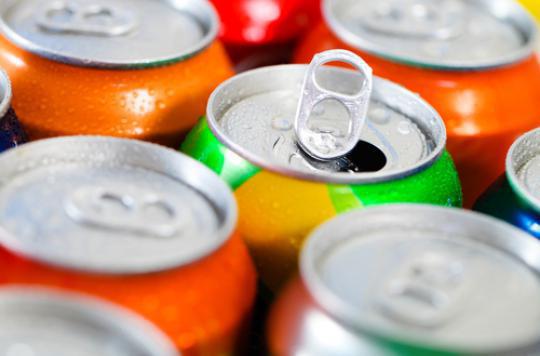MAINTENANCE – At the rate of one can a day, Canadians drink too much sugar. This will cause 63,000 deaths over the next 25 years.

The addition is salty. On average, Canadians consume nearly one can of sugary drinks per day (44 cl). This bad habit will cause 63,000 deaths over the next quarter century. For the health system, this represents a huge bill: more than 50 billion Canadian dollars, or 35 billion euros. The University of Waterloo (Canada), at the origin of this projection, is sounding the alarm.
Young people are at the heart of the announced crisis. Indeed, 9-18 year olds absorb more than one can (57 cl) of sugary drinks. On a daily basis, they therefore consume 64 grams of sugar. And that’s not counting other sources of glucose. This is far more than 10% of food intake, the threshold recommended by the World Health Organization.
Canada is far from isolated on this front. France is more reasonable, with 14 centilitres per day and per capita. But this is still excessive. Guy Fagherazzi, epidemiologist at the Gustave-Roussy Institute (Villejuif, Val-de-Marne), details the challenges of this epidemic.
How do you explain these figures?
Guy Fagherazzi : What explains the strong impact of the consumption of this type of drink on mortality is mainly the effect on weight and overweight. Excessive sugar consumption is directly linked to weight gain and an increased risk of obesity. All of this has a major impact on metabolic diseases, on certain cancers. If the trend continues, we will see an explosion in cases of type 2 diabetes and certain cancers linked to obesity.
Listen to the full interview with Guy Fagherazzi
What preventive approaches have proven their worth?
Guy Fagherazzi : In terms of prevention to limit the consumption of this type of sugary drinks, some methods are starting to show their effects. The taxation of sugary drinks at the scale of an entire population shows that in some cases the strategy pays off. There is also a strong desire to limit the consumption of the youngest, because consumption habits are installed from a young age. One of the methods implemented in France is the ban on unlimited vending machines for this type of drink.
What are the rules to recommend to parents?
Guy Fagherazzi : The simplest recommendations are really to limit the consumption of sodas whatever it is: classic drinks with added sugars, but also drinks based on sweeteners with an artificially sweet taste. It is not a healthy alternative. The last message is to maximize the consumption of water or tea to hydrate. It is always the best solution.
Is the light really better than sugary drinks?
Guy Fagherazzi : There is today a real controversy on the effect of drinks based on sweeteners. The literature on the subject shows conflicting results. There is a tendency, in recent years, to show that excessive consumption of drinks containing sweeteners is associated in the long term with a greater risk of overweight, diabetes, a change in the microbiota that can lead insulin resistance and therefore metabolic diseases. Until we have more information on this subject, the precautionary principle must be applied.
.

















